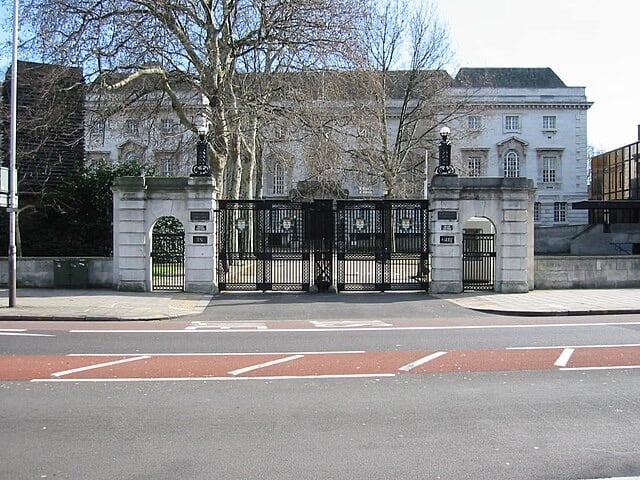A 43-year-old asylum seeker will stand trial next year accused of multiple serious sexual offences against a primary school pupil, it can be reported.
Kamran Khan, originally from Pakistan, appeared at Inner London Crown Court on Tuesday where he pleaded not guilty to ten charges relating to alleged offences against an eight-year-old girl. The charges include two counts of rape of a child under 13 and multiple counts of sexual assault and causing a child to engage in sexual activity.
The alleged offences are said to have taken place between September 2024 and July 2025 whilst Khan was living in Lambeth, South London. He was remanded in custody last month following his arrest.
Court Proceedings
During the brief hearing on Tuesday, Khan spoke through an Urdu interpreter as he entered not guilty pleas to all charges. Court observers noted he appeared in a prison-issue grey t-shirt and placed his hand on his head and stroked his beard as the charges were read to him.
Judge Benedict Kelleher fixed a seven-day trial to begin on 5 January 2026 at Inner London Crown Court. Khan was remanded in custody to await trial.
The charges Khan faces include two counts of rape of a child under 13, two counts of causing a child to watch a sexual act, four counts of sexual assault of a child under 13, and two counts of causing or inciting a child under 13 to engage in sexual activity.
Legal Framework
Under the Sexual Offences Act 2003, offences against children under 13 are among the most serious in English criminal law. These charges carry maximum sentences of life imprisonment for the most serious offences.
The Act specifically provides that children under 13 cannot legally consent to any form of sexual activity, meaning the prosecution need only prove that the alleged acts took place, not that there was an absence of consent.
All alleged victims of sexual offences in England and Wales are granted automatic anonymity for life from the moment an allegation is made. This protection, established under the Sexual Offences (Amendment) Act 1992, means that nothing can be published which might lead to the identification of the complainant.
Reporting Restrictions
In accordance with legal requirements, no information can be published that might identify the alleged victim in this case. This includes any details about their school, family relationships, or other circumstances that could lead to their identification.
The court has powers to impose additional reporting restrictions in cases involving children, though standard automatic anonymity provisions already provide comprehensive protection for young complainants in sexual offence cases.
Breach of these anonymity provisions constitutes a criminal offence punishable by fine. These protections exist to encourage victims to come forward and report offences without fear of public identification or media intrusion.
Trial Process
When the trial begins in January 2026, special measures are likely to be in place to assist the young complainant in giving evidence. These may include giving evidence via video link, the use of screens in court, or pre-recorded evidence.
The Crown Prosecution Service follows specific guidelines when prosecuting cases involving child sexual abuse, recognising the particular vulnerabilities of young witnesses and the need for appropriate support throughout the legal process.
Khan will remain in custody until his trial date. If convicted of the most serious charges, he would face a substantial prison sentence, with rape of a child under 13 carrying a maximum penalty of life imprisonment.
Context of Child Protection
Cases involving alleged sexual offences against children are handled with particular sensitivity by the criminal justice system. The courts recognise that young complainants may face specific challenges in giving evidence and various protective measures exist to support them through the process.
The prosecution of such cases requires careful handling to ensure both the protection of vulnerable witnesses and the defendant’s right to a fair trial. Special training is provided to legal professionals dealing with cases involving child complainants.
The case highlights the ongoing work of law enforcement and child protection services in investigating allegations of sexual offences against children, regardless of the background or status of those accused.
As with all criminal proceedings, Khan is presumed innocent until proven guilty. The trial next year will examine the evidence and determine whether the prosecution can prove the charges beyond reasonable doubt.
Reporting restrictions apply to this case to protect the identity of the alleged victim. Nothing should be published which could lead to their identification.
Follow for more updates on Britannia Daily



